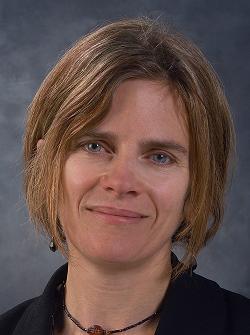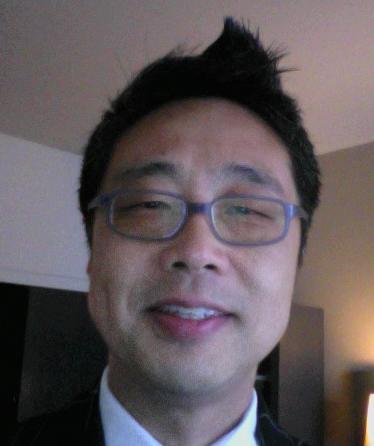| The Public Understanding of Religion and the AAR |
![PDF-NOTE: Internet Explorer Users, right click the PDF Icon and choose [save target as] if you are experiencing problems with clicking.](http://rsnonline.org/templates/rsntemplate-smallmasthead/images/pdf_button.png) |
 |
Sarah M. Pike, Chair, California State University, Chico, and David Kyuman Kim, Connecticut College
A core commitment of the AAR’s mission is to engage the public on questions of religion and public life. These engagements take the form of education, broadly construed, including higher education, but also critical considerations of issues of public policy, religious literacy, public education, civil society, international relations, and other pressing concerns. The AAR understands that there is not one “public” to which it is responsible and accountable, but rather multiple publics: AAR members, faculty and independent scholars, students, the reading public (news, trade publications, blogs), members of religious communities and their leaderships, local, state, and federal representatives, and other academic disciplines. The AAR seeks to fulfill this mission of public engagement, fully understanding that its members work in many spheres outside the academy. But what exactly has the public understanding of religion meant in the AAR’s recent history and in its engagement with these various publics? As scholars of religion, what should our responsibility be to the many publics we serve and engage? To what extent should religious studies scholars speak and write for the general public outside of our classrooms, or for the news media that so often misrepresents our opinions? If we do not speak to larger publics about religion, who will? If the loudest voices in the public sphere promote misunderstanding, historical inaccuracy, or bigotry, are we failing our various public constituencies? How might we most effectively engage the kinds of public constituencies we wish to serve in order to broaden public understanding of religion? These and other questions have been at the heart of the work of the AAR’s Public Understanding of Religion Committee (PUR) since the AAR Board of Directors founded it in 1994. The Committee’s charge is to “foster attention to the broad public understanding of religion and the role of religion in public life.” This charge is principally achieved by developing ways to make the expertise of scholars in religion available to the media and the public. To this end, PUR has been involved in a wide range of activities and initiatives within and outside of the academy, some of which are featured at the Annual Meeting. For instance, every year PUR sponsors the Marty Forum featuring the Martin E. Marty Public Understanding of Religion Award-winner and at least one Special Topics Forum. Beginning in 1996 when Martin E. Marty was honored, the Committee has given the Marty Award to “those whose work has a relevance and eloquence that speaks, not just to scholars, but more broadly to the public as well.” In a sense, recipients of the award represent the best work of the AAR in reaching a variety of publics outside academia. Scholars who are novelists, sociologists, bestselling nonfiction writers, and champions of pluralism have all been among the honorees. Also featured at the Annual Meeting, PUR’s Special Topics Forums have focused on a variety of topics, such as the impact of America’s war on terror on Muslims and the general public, religion and the world of museums, religion and politics in the 2011 election, the Supreme Court and religion, contested sacred space at national parks, and law enforcement and the media in crisis situations. Since its founding, the Public Understanding of Religion Committee — and the AAR in its work in public outreach — have facilitated many activities and initiatives beyond programming at the Annual Meeting. The PUR and the AAR have provided various kinds of resources to specific publics, such as prison chaplains, FBI officials, and public school teachers. Educational gatherings with FBI officials at the AAR Annual Meeting began in 1998 and enabled FBI agents to meet with and learn from scholars with expertise in a wide range of religious traditions. Former PUR Chair Dena Davis came up with the idea to provide a program aimed at prison chaplaincy directors. The prison chaplains’ gatherings at the Annual Meeting, organized by AAR staff member Steve Herrick and AAR member Patrick McCollum, began in 2004 and included workshops with a variety of AAR scholars representing the different religious traditions commonly encountered by prison chaplains. A different form of outreach, also founded by Herrick and hosted by the AAR and Religionsource — an online resource networking journalists and scholars — launched in fall 2002. The AAR also honors the best journalism on religion through the Award for Best In-depth Newswriting on Religion, presented annually. Finally, the AAR’s most recent initiative concerning public understanding of religion, the Guidelines for Teaching about Religion in K–12 Public Schools in the United States was released in 2010, the result of a three-year project undertaken by the Religion in the Schools Task Force (chaired by Diane Moore of Harvard University and composed of AAR members from a wide range of disciplines). Even with these notable achievements, the AAR continues to ask: Are these initiatives the most effective and appropriate ways for a scholarly organization to engage with larger publics? What might our next steps be? We hope that you will join us at a Special Topics Forum dedicated to discussing the AAR’s role in the public sphere at this year’s Annual Meeting in San Francisco. On Monday, November 21, 2011, at 1:00 PM, the PUR and the AAR Planning Committee will hold a roundtable forum bringing together scholars, public intellectuals, and other thoughtful interlocutors of publics on issues of religion. The design of the session is a dialogue; in fact, the roundtable will mark the beginning of an ongoing conversation that the AAR has committed to taking up over the coming years. Each participant will speak for five minutes or so at the beginning of the session. At the end of the session, we will be soliciting suggestions for program development in the area of the public understanding of religion. We would like to provide a forum in which AAR members can critically question how best to serve our various publics in this era of globally connected technologies and cultures, where blogging and online news now, more than ever, feature contentious religious issues and, often, misrepresentations of religious traditions. How might new technologies help us promote public understanding of misrepresented and misunderstood religious communities and the role of religion in global politics and violence? We invite all interested AAR members to have a voice in deciding what kinds of public understanding of religion initiatives the AAR should engage in. We hope you will join us for the session in San Francisco!
|


 Sarah Pike is professor of religious studies and director of the Humanities Center at California State University, Chico. She also chairs the American Academy of Religion’s Public Understanding of Religion Committee. Pike is the author of Earthly Bodies, Magical Selves: Contemporary Pagans and the Search for Community (University of California Press, 2001) and New Age and Neopagan Religions in America (Columbia University Press, 2004). She is currently working on a book about religion, youth culture, radical environmentalism, and animal rights activism.
Sarah Pike is professor of religious studies and director of the Humanities Center at California State University, Chico. She also chairs the American Academy of Religion’s Public Understanding of Religion Committee. Pike is the author of Earthly Bodies, Magical Selves: Contemporary Pagans and the Search for Community (University of California Press, 2001) and New Age and Neopagan Religions in America (Columbia University Press, 2004). She is currently working on a book about religion, youth culture, radical environmentalism, and animal rights activism. David Kyuman Kim is associate professor in the department of religious studies and the program in American studies at Connecticut College. He currently serves as At-Large Director on the AAR Board of Directors. Kim is also coeditor of a forthcoming book series entitled RaceReligion, published by Stanford University Press. In addition, Kim is also an editor-at-large of
David Kyuman Kim is associate professor in the department of religious studies and the program in American studies at Connecticut College. He currently serves as At-Large Director on the AAR Board of Directors. Kim is also coeditor of a forthcoming book series entitled RaceReligion, published by Stanford University Press. In addition, Kim is also an editor-at-large of 